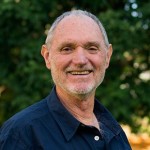In the quiet time between Christmas and New Year, I have been pondering what promises to be a full and highly creative 2017. I know that no matter how carefully and intelligently I might plan and set intentions for this upcoming year, it is highly unlikely that, on looking back in a year’s time, what has actually transpired will bear any close resemblance to my current intentions or expectations. What I am certain of however, is that there will be challenges, joys, losses, victories and a plethora of opportunities to grow and learn.
Much that has transpired in the world during 2016 has indicated an on-going trend of growing intensity and impending radical change. Where can we find an anchoring point of stability and sanity amidst the ubiquitous noise and turbulence of modern-day life?
A few days ago I came across the text of the Midnight Mass Address delivered on Christmas Eve at St George’s Cathedral in Cape Town, by Archbishop Thabo Makgoba. I found his illustration of how important the element of silence is to our ability to effectively deal with our environment to be pertinent to my consideration of the way ahead.
In the first part of his address, Archbishop Makgoba speaks about the necessity of people taking a stand in their lives and not just resigning themselves to the corruption and injustice in the world. He encouraged us to shine the light ourselves instead of waiting for someone else to shine it for us, instead of sitting around and hoping things will get better.
He suggests in the latter part of his address (excerpted below), that the light of motivation and understanding must come from a place of internal silence, away from the usual experience of cacophony and distraction. These are the closing words of his address:
I suppose my last point will come as a bit of a shock amidst the festive noise that characterises this time of year, but the Nativity also points us to the gift of silence. It is a reminder that it is from carefully cultivated silent spaces that courage and generosity of spirit flow.
A deep inner silence allows us to hear God and respond appropriately. In all of the Christmas story, we never hear a single word from Joseph, yet out of that silence, he is able to hear God and act in ways that are appropriate for protecting the life entrusted to him. Out of that silence he is able to resist Herod’s evil, deadly political strategies and dishonest, elitist schemes. We are reminded by Luke that Mary ‘ponders these things in her heart,’ and out of that silent space she nurtures this new initiative of God. That silence later emboldens her to stand in solidarity with the remnant of Israel’s hope at the foot of the Cross, believing that her Son’s crucifixion was not the end but rather another threshold moment that expanded God’s definition of love.
Christmas reminds us that our world and our public spaces, as well as our own hearts, are impoverished and that our public declarations are inadequate if they are not rooted in silence, in the quiet of the Christmas moment. The carol, Silent Night suggests that for the shepherds, the recognition of what God was doing in nearby Bethlehem—this awakening of the poor, the vision of the angels, the sign of a deeper understanding and interpretation of the mystery—was all rooted in silence. The Quaker William Penn used to say: “True silence is the rest of the mind, and is to the spirit what sleep is to the body, nourishment and refreshment.” Christmas challenges us to create little pockets of silence, reflective spaces where we can ponder what God is doing and what is happening around us. It was out of silence that Walter Sisulu spoke those words of courage and hope. It was out of deep reflection that Martin Luther King Junior said that “our lives begin to end” on the day we stop speaking out about the things that matter.
In coming to dwell with us and in being one with us, our God, Emmanuel, proclaims that we cannot just hope that things will get better. We need to act. This Christmas, and in our Lenten studies, we need to ask ourselves: What should, could and must South Africa become? What should, could and must Aleppo, Burundi, Gambia, Nigeria, South Sudan, the USA and Zimbabwe become? What kind of environment should, could and must we leave behind on this planet for the next generation?
On this most holy night, we are reminded that God is with us, loving us into wholeness, and if our hearts are open to the margins—and there we make room for sacred spaces in our busy lives—we too will know the joy of the shepherds and hasten to the places of new life. May it be so for us and for our world!
(BizNews.com/Thought Leaders/December 25 2016)
With this in mind, I wish you a creative, joyous year ahead, infused with sacred spaces of tranquility and peace from which new life and love can emerge. Our worlds and the people in them, long for respite from what otherwise can feel like overwhelming onslaught and disquiet. Let’s together share the gifts of our own resilience and our confidence in the power of Love, the clarity of Truth and the assurance of Life.
Happy New Year!
-Phil Richardson
 PHIL RICHARDSON is an international speaker and teacher who invites people to reconnect with their deeper innate spiritual awareness and to bring that awareness into their everyday lives.
PHIL RICHARDSON is an international speaker and teacher who invites people to reconnect with their deeper innate spiritual awareness and to bring that awareness into their everyday lives.
My deep thanks, Phil, for this touching and inspiring New Year’s greeting!